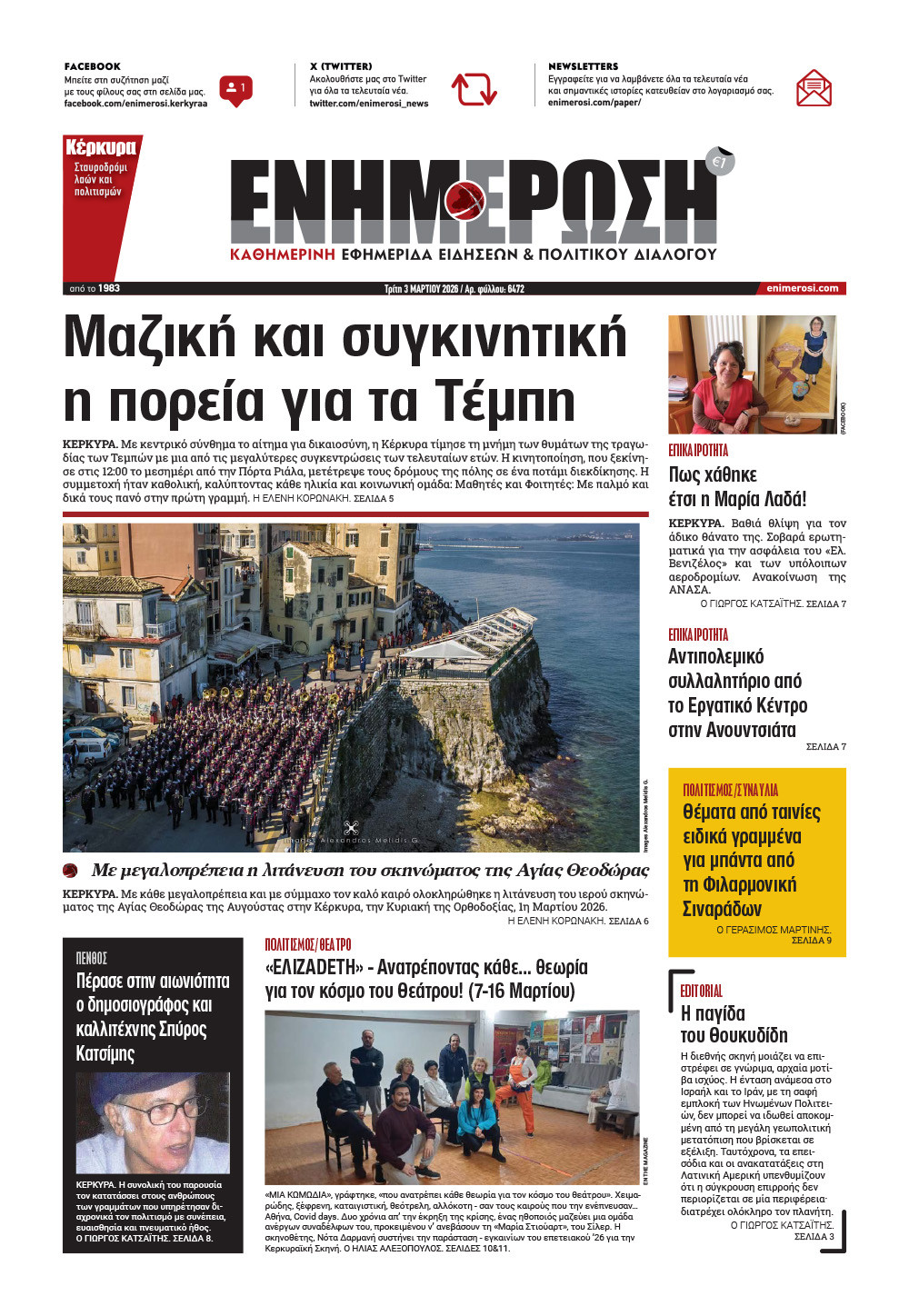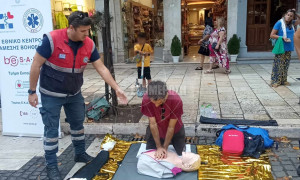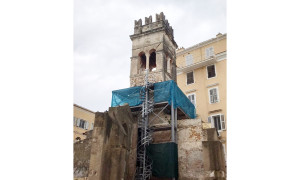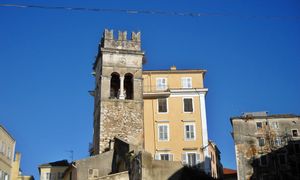Victorious Christian fleet returns to Annunziata

CORFU. The study of the Annunziata’s archives proves to be revealing regarding the participation of crews in the Battle of Lepanto.
The anniversary of the Battle of Lepanto (7 October 1571) has a Corfu flavour with the events that have been scheduled, culminating in the unveiling of a commemorative plaque at Annunziata, in a co-organisation by the Embassy of Spain and the Ministry of National Defence, with the Spanish ambassador to Athens, Jorge Domenecq, as guest.

After the memorial service at the Metropolitan Church, there will follow (at 11:00) a wreath-laying ceremony for those who fell in the Battle of Lepanto at the Monument of the Unknown Soldier.
The anniversary was mentioned in a statement by the secretary of the PASOK–KINAL parliamentary group and Corfu MP, Dimitris Biagis:
“Corfu, like all the Ionian Islands, took an active part in the Battle of Lepanto. Our island was the strategic point where the fleets of the allied Christian forces met, symbolising the union of Europe against the Ottoman threat. From Corfu departed the galleys that had come from all over Europe for the great battle, and to Corfu they triumphantly returned to celebrate the great victory and to bury their dead with reverence. The Corfiots manned a total of five galleys. The Church of the Annunziata, the only surviving monument from that era, should be the focal point of international commemorative events.
Five years have passed since the official proposal we submitted to the authorities and the State for a celebration worthy of this historic event. No initiative, no response, no action has been taken in that direction.
Our proposals, unfortunately, remained unutilised. Our island, although it should play a key role in the commemorations, continues to follow, lagging behind the pioneering town of Nafpaktos, which for decades has reaped the laurels of a naval battle in which it had no substantial participation.”
The San Giacomo Residents’ Association, in its announcement, notes:
“The historic battle simultaneously sends the clear message of the need to develop a sincere dialogue between East and West, so that differences and oppositions that still today bring misery and destruction to peoples may be overcome.
It is well known that as a historical and cultural event, the Battle of Lepanto involved the town, our island, all the islands of our present administrative region, and the entire Hellenic world. Despite the victory of the allied Christian fleet, the terrible clash caused enormous human losses, and the bodies of the Corfiot fallen, upon their return to the island, were buried in the cemeteries of the churches of Saint Nicholas of the Elders and the Virgin Annunziata.
However, the San Giacomo Association repeats once again this year the need to recognise its importance through the erection of a monument worthy of this historic event.”
Zakynthos
As part of the events commemorating the anniversary of the Battle of Lepanto in Zakynthos, the Sinardes Philharmonic Band participated on Saturday, October 4. On Saturday morning, it paraded through the historic centre of the town, ending at Solomos Square, where a memorial service was held in honour of those who fell in the battle.
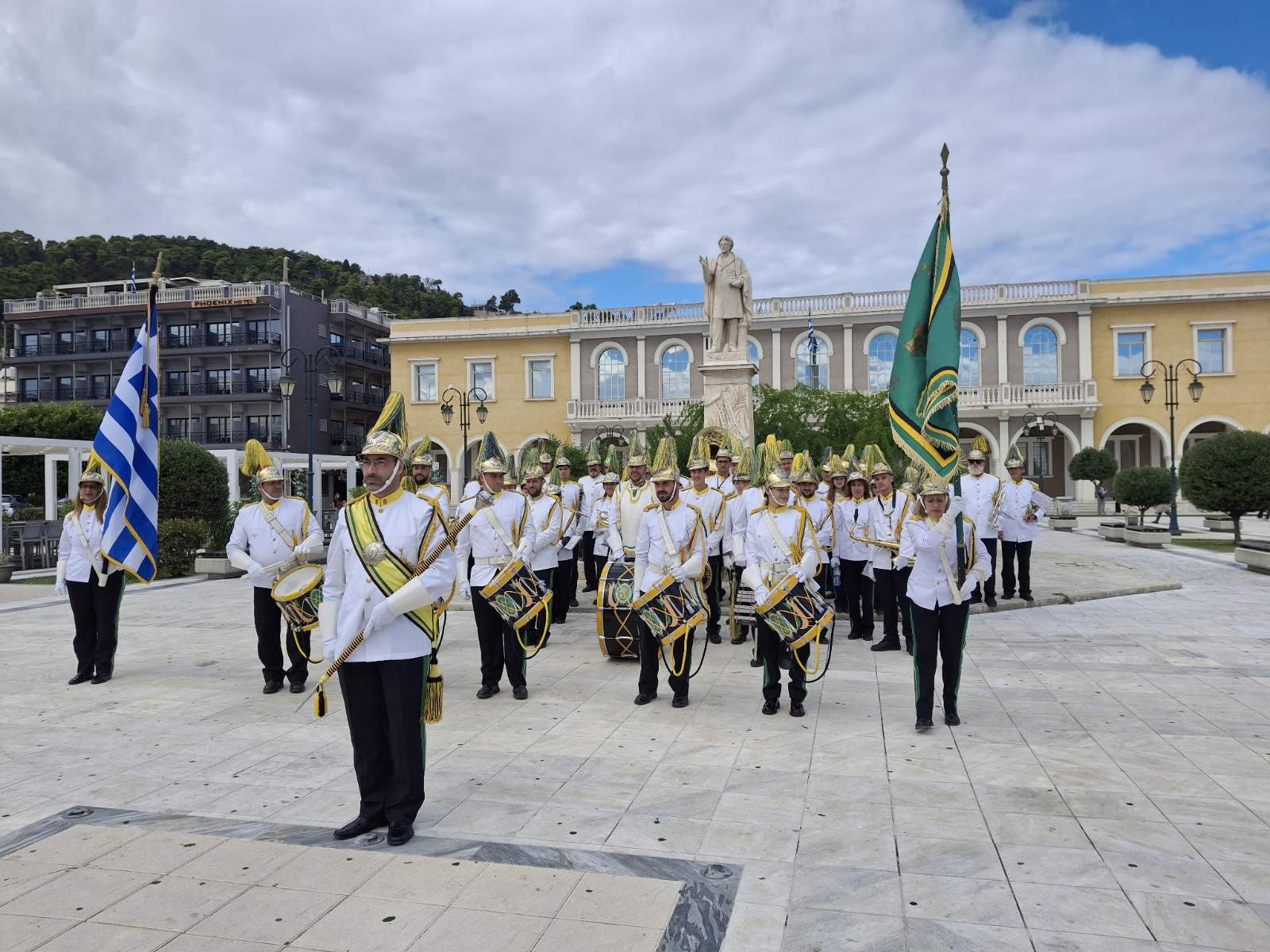
Immediately afterward, a delegation from the Board of Directors attended the Zakynthos Cultural Centre, where the official reception for the guests from the “Milaneio” Naval Museum took place. During the ceremony, the President of the Board presented commemorative gifts to the “Milaneio” Naval Museum, among them the book by Georgios Ch. Sourtzinis, Corfu of the Interwar Period, published by the Historical and Folklore Society of Corfu, based in the village of Sinardes.
On the evening of the same day, the musical corps gave a short concert at the Zakynthos Municipal Theatre.
Cervantes
Miguel de Cervantes, author of Don Quixote—a work often described as the masterpiece of the millennium—took part as a soldier in the Battle of Lepanto, a victory of the Christian fleet against the Ottomans. Proud of his participation, Cervantes declared that it was “the most glorious battle of the ages,” which shattered the myth of the invincible Ottoman naval power and marked the end of oared ships in favour of sailing vessels.
GIORGOS KATSAITIS



